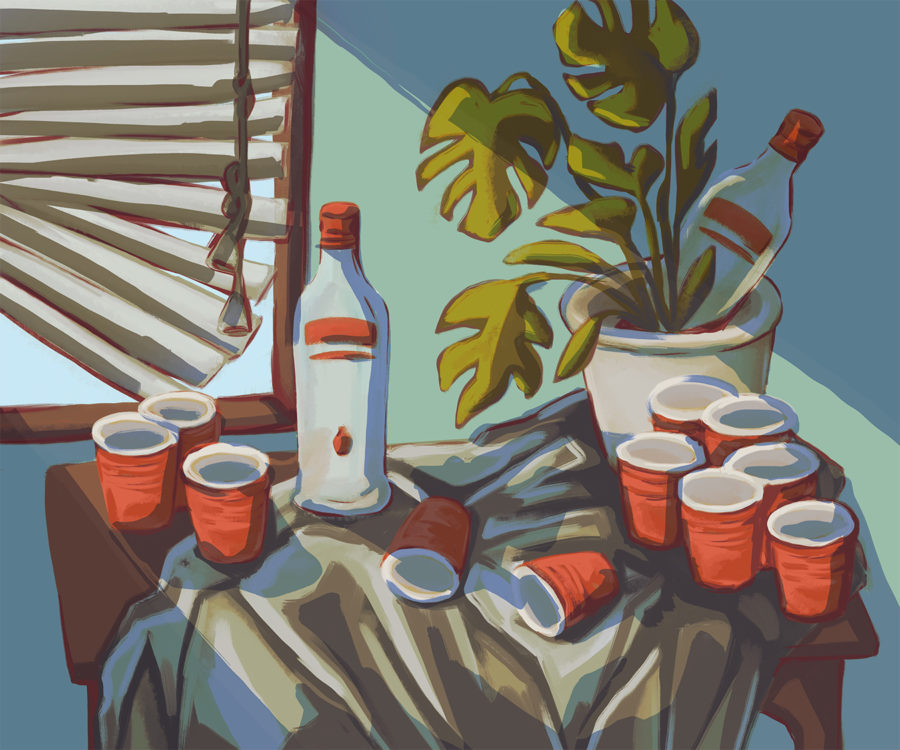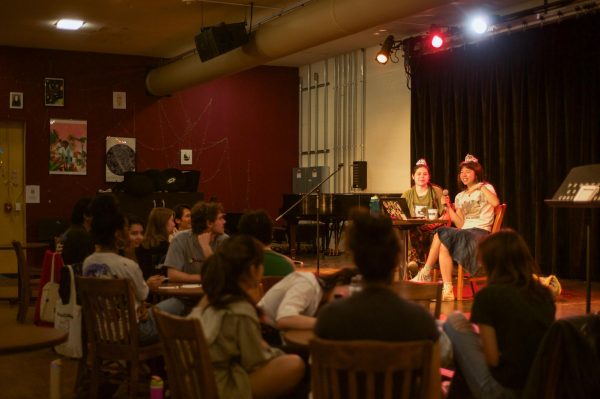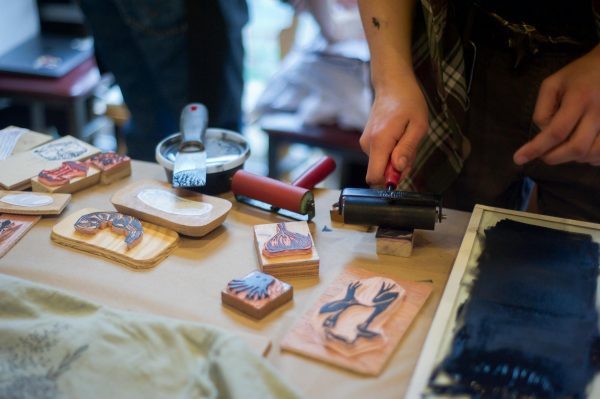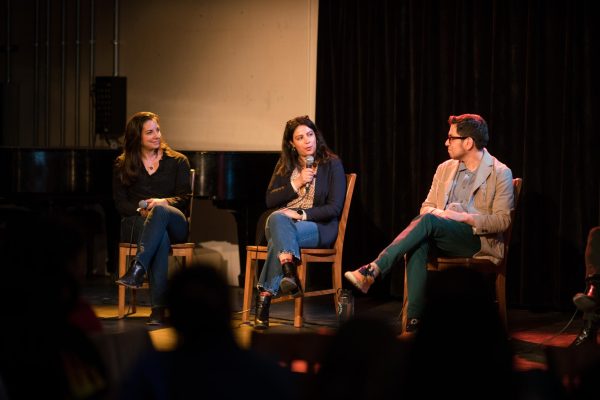Obies Envision the Return of College Parties
Before the pandemic, a typical Friday night at Oberlin included a multitude of options for Obies to gather in a sweaty crowd, dance, chat, and party. On south campus, you could stumble onto a jazz party, where talented students would play live music in basements and living rooms. On north campus, there were Union Street parties, more often populated by athletes and featured ‘rage cage’ or beer pong.
Now, with high vaccination numbers and mask mandates being lifted on campus, there is a sense of hope that Oberlin’s Friday and Saturday nights might return to their former boisterous festivities.
College third-year Faith Ward is especially excited for the Oberlin party scene to return over the summer.
“I want to connect with other people in a way only dancing mindlessly and telling strangers you love them can achieve,” Ward said.
Still, seeing Oberlin’s party scene inch closer to normal has become an ironic source of pain for recent graduates, who feel they are just getting a glimpse of what senior year could have been like without a pandemic, only to leave campus a few days later.
“I was glad that people who really wanted to party got the chance before we left,” Sophie Aaron, OC ’21 said. “But personally, it made saying goodbye to both people and Oberlin more difficult. … It was so different from the rest of the year that it made me realize the true social cost of the pandemic.”
Last year, the class of 2020 went without an in-person commencement entirely. This year’s graduating class, however, did get some semblance of a normal graduation ceremony on May 14, limited to just the graduates and two guests of their choice each. Still, typically commencement includes a full week of partying, alumni reunions, and nights at the ’Sco. This year’s commencement was just one day long, and while some students did host and attend parties, they were not technically permitted by the College.
“ObieSafe policies remain in effect until June 2nd, so current party guidelines must be followed,” wrote Campus COVID-19 Coordinator Katie Gravens in an email to the Review. “However, beginning June 2, social gatherings, including traditional college parties are permitted.”
The CDC removed its social distancing and masking recommendations on May 13, just one day before Oberlin’s commencement. Four days after the CDC’s updated recommendations, Oberlin loosened its ObieSafe policies to allow for vaccinated students to stop wearing masks, but this was a few days after most graduating students had left.
However, the practice of celebrating the accomplishment of finishing college is so important that graduating fourth-years found ways to work around the ObieSafe guidelines.
Sun Moon, OC ’21, commented that the limits were actually a source of motivation for gatherings.
“By the end, I think knowing that we weren’t going to get a Commencement Week … it became this thing of, I need to see people, let’s throw a party, but not throw a party, but invite 10 or 15 people, be outside, socially distanced, masked, just to see people,” he said.
Aaron appreciated the creativity the pandemic brought out in her classmates in their efforts to keep spirits up.
“My pod and I would try and recreate the ‘Sco in their apartment,” she said. “It was funny trying to pretend that it was Splitchers with 6 people.”
The pandemic forced a multitude of sacrifices, including the loss of Oberlin’s party scene. But for Moon, the limits on college social life actually contributed to its improvement.
“Because we all were touch deprived, like emotionally deprived, what I did notice about [post COVID-19] parties, it was much more intimate,” he said. “I feel like I had more conversations that were less superficial. … Like, instead of when someone would ask, ‘how are you doing?’ They would be like, oh, like, ‘how are you actually doing?’”
This intimacy, brought out by the pandemic, reveals the drawbacks of Oberlin’s parties pre-pandemic. Moon said he preferred pre-games — where close friends would meet before going to a larger party — to Oberlin’s parties because of how much more connected he felt to his friends.
Still, Moon did experience a sense of FOMO about students who will get to continue college life without pandemic restrictions, but it did not overshadow his sense of social connection when leaving Oberlin.
“I felt like I was missing out on something, but at the same time, I was really grateful for everything, for all the connections I made,” he said. “Surprisingly, [during the] spring I hung out with so many people outside, distanced and masked.”
Still, for students who do get to continue college, the potential future return of parties can bring a whole new list of concerns after spending an isolating year without them.
“As someone who has always been, I guess, socially awkward, I think I always struggled with being in large groups, especially at parties, because it’s loud, and there’s a bunch of people and you don’t know who to talk to or whatever,” said College second-year Julia Clark. “But then being home for like a year with quarantine I sort of forgot anything that I knew in the first place. Now it’s starting really back at square one and I fear that as things begin to open up and parties begin to happen it will be super, more awkward than it already was for people like me.”
On June 2 Oberlin’s party scene will be permitted to resume, but Gravens is hopeful that students will consider lingering health threats, as well as the safety needs of others.
“Each individual should assess the personal risk involved in gathering with others,” she wrote, “The CDC does recommend wearing a mask when people are in a large crowd, even if they are vaccinated. Some people may choose to wear a mask and maintain distance even in a small gathering. Respecting and supporting the choices of others is critical.”









